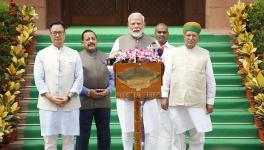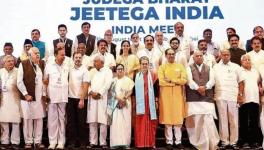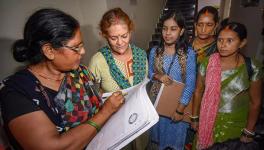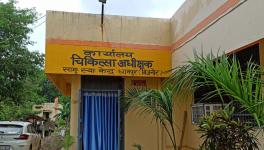Tamil Nadu: State-owned Vaccine Manufacturing Unit on Verge of Shutdown
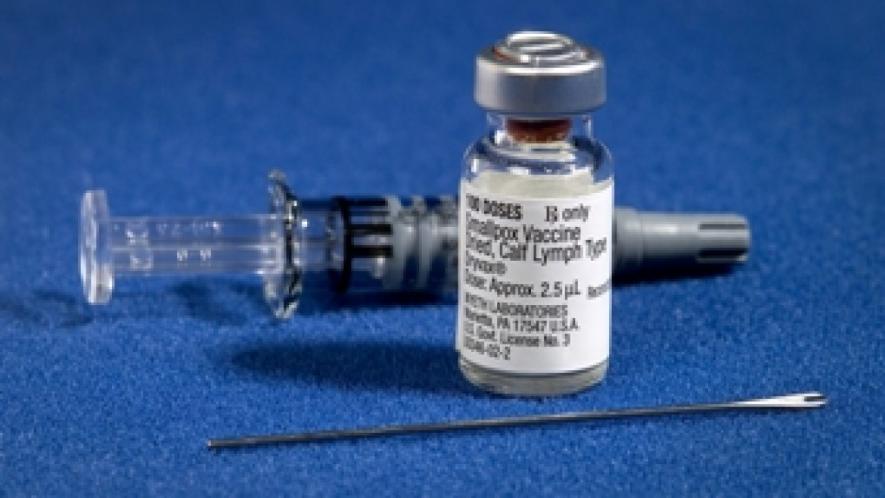
Image Used for Representational Purpose Only
The Integrated Vaccine Complex (IVC) of HLL Biotech Limited (HBL) in Chengalpet district in Tamil Nadu, which was started to manufacture life saving vaccines, is on the verge of being shelved. Since the announcement of the setting up of the 'project of national importance' in 2012 as a subsidiary organisation of HLL Life Care Limited, the sanctioning of funds and other procedures have been going through several bottlenecks. Now, the employees are being granted unpaid leave for a duration of up to five years, enabling them to pursue other career options, while the employees deputed from HLL are being sent back to the parent organisation.
The employees numbering around 200 are yet to be paid their salary for the past eight months citing financial constraints. The Tamil Nadu Health Development Organisation (TNHDO) has demanded the union government and Ministry of Health to accelerate the manufacturing process and ensure that the HBL remains a public sector company.
HLL ANNOUNCES TRANSFER OPTION, LEAVE WITHOUT PAY
The HLL headquartered in Trivandrum, announced on February 11 that it was unable to pay the employees of HBL due to acute fund shortage. The employees were given a final opportunity to opt for temporary transfer to any of the subsidiaries of the HLL anywhere in the country. However, the letter also categorically stated that HBL employees are not entitled for any permanent post in HLL. The employees were also informed about the absence of transfer option after accepting this offer.
Another announcement on February 28 gave them the option of special leave without pay (SLWP) for all the permanent employees. The letter offered them leave up to five years 'enabling' them to take up any other employment, business inside or outside India. They were assured of being taken back into the organisation if and when things become normal. The series of announcements have left the future of the employees hanging, and the self reliability of the country in vaccine manufacturing under question. The country has been highly dependent on private players for vaccine manufacturing since 2008, incurring high costs for the government. Repeated representations to the president, prime minister, ministries of finance and health and family welfare have failed to elicit any positive response.
Also read: Goodbye Vaccines, Welcome Gomutra
The Cabinet Committee on Economic Affairs (CCEA) announced the formation of HBL in 2012 to tide over the shortage of vaccines that was created by the negative reports on inspection by WHO of four existing vaccine production units in 2008. Following these reports, these units—Coonoor Pasteur Institute, BCG Vaccine Laboratory and Guindy in Tamil Nadu, and Central Research Institute in Himachal Pradesh were not able to manufacture vaccines.
The organisation was vested with the duty of catering to 75% needs of the country, including Liquid Pentavalent vaccine, BCG vaccine, Rabies vaccine, Japanese Encephalitis vaccine, Hepatitis B vaccine and Measles (Rubella) vaccine to a total of 585 million doses. The initial project cost was Rs 594 crore. In 2018-19, the revised cost was estimated at Rs 904.33 crore, with an additional Rs 310 crore on top of the initial cost.
FINANCE MINISTRY REJECTED ESCALATED COST
The Ministry of Finance, unfortunately, rejected the proposal terming the project as financially unviable. The rejection came as a shock as the 100 acre campus has been equipped with appropriate infrastructure as well as research and development facilities. A total of 14 blocks, constructed for manufacturing and support facilities meeting the requirements of WHO, have also been completed.
Also read: Why there is No Good News for India’s Healthcare
S Kannan, state secretary of Centre of Indian Trade Unions (CITU) told NewsClick, "HBL was started as a project of national importance and dropping the project citing the excess sum of Rs 310 crore requested by HBL is very unfortunate. If the government cites time overlay and cost overlay, the union government is the one to be held responsible and not the organisation alone. When HBL wrote to the ministry in April 2017 requesting an additional amount of Rs 116.06 crore, the ministry found time to reply only in June 2018".
COMMITTEE RECOMMENDED ADDITIONAL COST
The Finance Ministry had asked HBL for a detailed report and substantiation of the reasons for cost escalation. After considering the report submitted, the ministry had set up a three-member committee to evaluate the proposal. Three months later in October 2018, the committee recommended the ministry to consider the request of HBL. However, the recommendation has not been considered leaving the operations of HBL in shambles.
Dr Rex Sargunam, president of TNHDO, said, "The government should ensure we manufacture life saving vaccines on our own without considering the profit factor. The government should not move from its responsibility of providing basic minimum facilities for saving the lives of its citizens. We have decided to conduct mass contact programs on the situation of HBL and hope the union government sanctions enough amount to initiate manufacturing of vaccines at the earliest.”
In another move in November 2017, the Ministry of Health and Family Welfare had announced the shelving of Vaccine Venture and Medi Park into Special Purpose Vehicles (SPV) along with the sale of 100% government equity in HLL. The letter stated that the decision was taken by the CCEA as per the recommendation of the NITI Aayog.
Meanwhile, there are allegations that with the abolition of Planning Commission and introduction of NITI Aayog, the government is attempting to destroy the public sector organisations and promote private players. Due to ‘ease of doing business’, several private players are now supplying vaccines at high costs. Trade union leaders also accuse that the private players are eyeing the state of the art facilities of these units for enhancing their profit.
The government's claim of cost and time overlay cannot be considered as a reason for dropping the project which will further strengthen the hold of private players in the industry.
Get the latest reports & analysis with people's perspective on Protests, movements & deep analytical videos, discussions of the current affairs in your Telegram app. Subscribe to NewsClick's Telegram channel & get Real-Time updates on stories, as they get published on our website.









